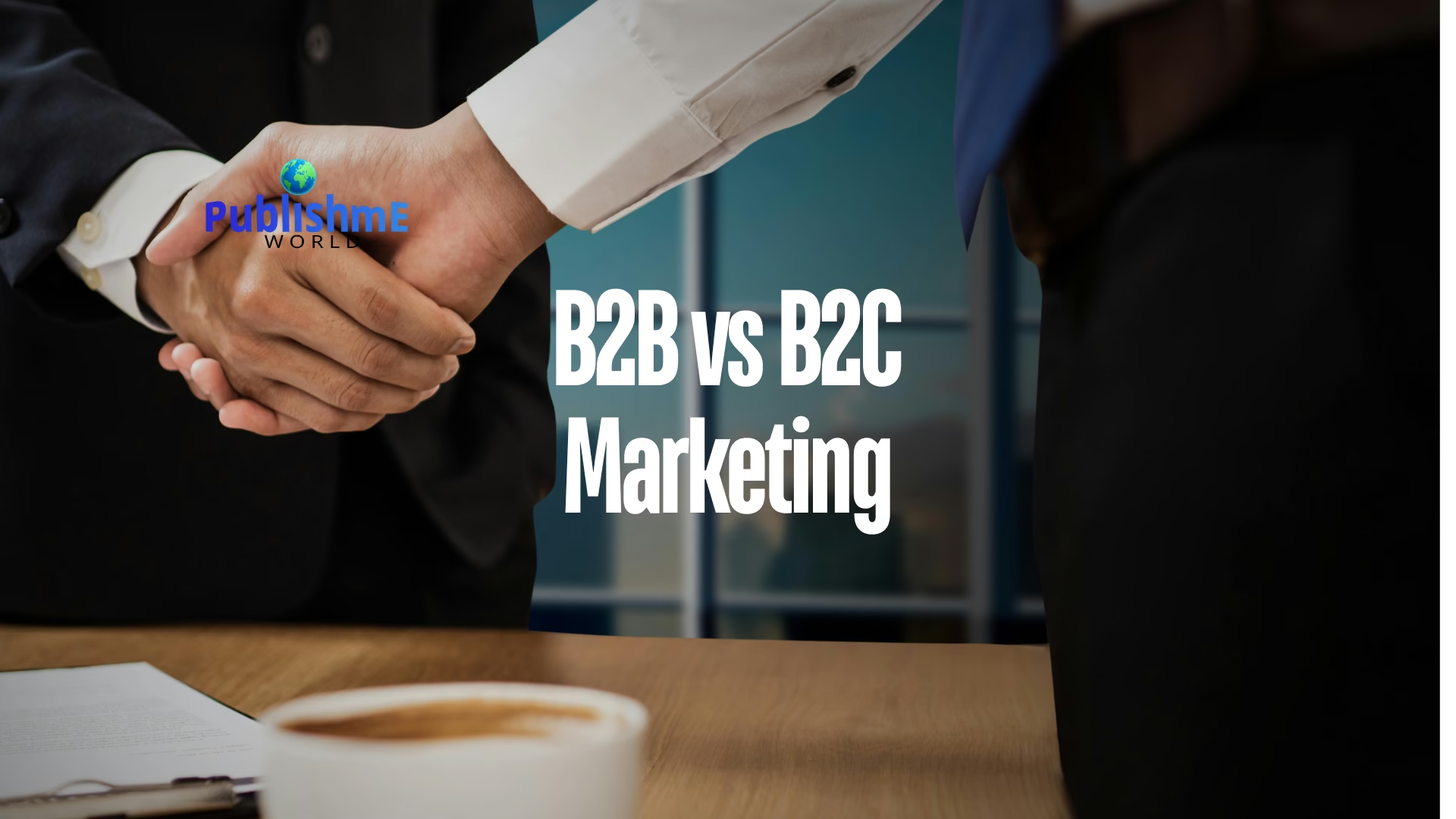introduction
Marketing plays an important role in connecting businesses with the target groups. However, there is a lot of variation in strategies used in B2B (Business-to-Business) and B2C (Business-to-consumer) marketing. While the two aim to run sales and build brand loyalty, the way they take unique is because of the audience, buying cycles, decision -making and message style. Understanding these differences is crucial to any market that will create a campaign that actually resonates with the audience.
B2B marketing refers to targeted marketing strategies for other businesses. On the other hand, B2C marketing focuses on individual consumers. The main difference is the buyer. In B2B, the rapists speak with professionals and decision makers in a company. These buyers often buy on the basis of logic, efficiency and return. On the other hand, B2C buyers are more emotionally powered, which make purchases on the basis of needs, desire or impulse.
In B2B marketing, the relationship means a lot. A simple B2B sale often requires multiple calls, product demo, follow -up and meetings. Trust and reliability are important, and it can take months to end an agreement. Materials such as white book, case study, ebook and detailed product guide play a major role in influencing the B2B buyer. These materials help to trust a product or service and show that a business understands the buyer’s industry and pain points.
On the other hand, B2C marketing focuses more on quick victory. The goal is to promote interest often and take immediate measures. Whether through emotional history, flash sales, impressive expeditions or through eye catches, B2C marketing must be faster. Social media platforms such as Instagram, Facebook and Tiktok are especially effective in B2C campaigns because they provide a place for brands to link directly to consumers and create lifestyle-driven materials.
The sales funnel in B2B marketing is much longer and more composed. B2B customers often include several decision makers, including procurement, finance and department heads. These stakeholders analyze products or services from many approaches, including costs, efficiency and long -term values. As a result, B2B marketing strategies should nourish over time through e -mail campaigns, educational webinars and individual follow -up follow -up. The abolition must place its brand as a long -lasting partner instead of a seller in just once.
In B2C marketing, the procurement process is often faster and includes low steps. A consumer can see an ad, click on a product page, read some reviews and a purchase – in all minutes. This is why B2C markets invest heavily in user -friendly websites, mobile apps and online reviews. Seamless digital experience, sharp boxes and attractive discounts can significantly affect the conversion frequencies. The list focuses on creating strong brand awareness and repeating shopping through loyalty programs and frequent branding.
Price strategies are also different in marketing B2B and B2C. In B2B, prices are often adapted to customer needs, project scope or amount of procurement. This means that interaction and contract are a standard part of the process. B2B buyers expect transparent prices and valued services such as on board support and training. On the other hand, B2C prices are more standardized and competitive. Consumers are more likely to compare prices in brands and look for the best available agreement. Flash sales, coupons and seasonal offerings are common techniques used to promote sales in the consumer market.
Customer service expectations between the B2B and B2C markets also vary greatly. In B2B, ongoing customer support and account management are important. A long -term relationship with a customer means fast recording of technical problems, provides dedicated help and adapting the solution over time. In B2C, attention is higher in speed and convenience. Consumers expect simple returns, 24/7 customer service chatbots and responsible communication. A bad customer experience can quickly lead to negative reviews and loss of brand loyalty.
Finally, a successful abuse must understand the biggest difference between B2B and B2C marketing to create strategies that match the needs of their target groups. From Tone and messages to channels and decision -making, all aspects of a marketing campaign should reflect whether the public is a business or consumer. By identifying these differences and optimizing accordingly, Sephers can create more effective campaigns, create permanent conditions and can lead to meaningful results in a competitive landscape.

